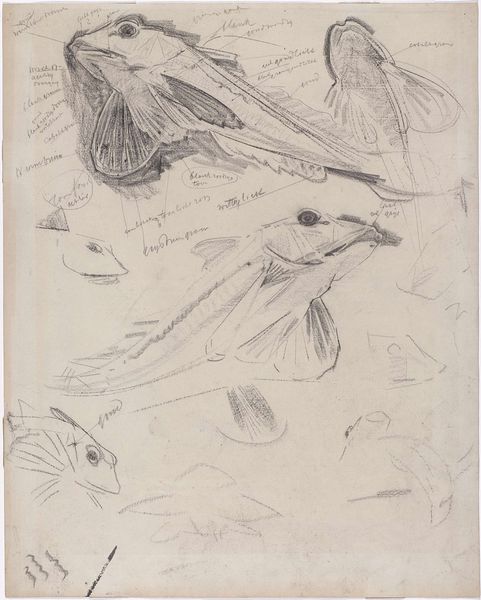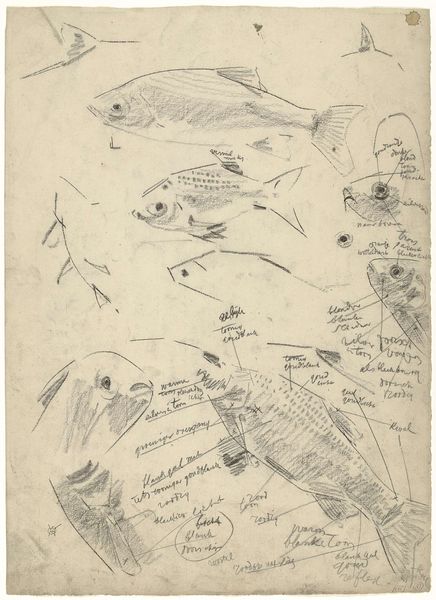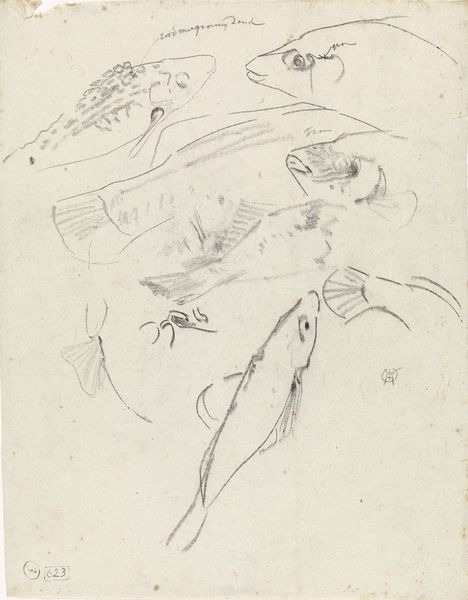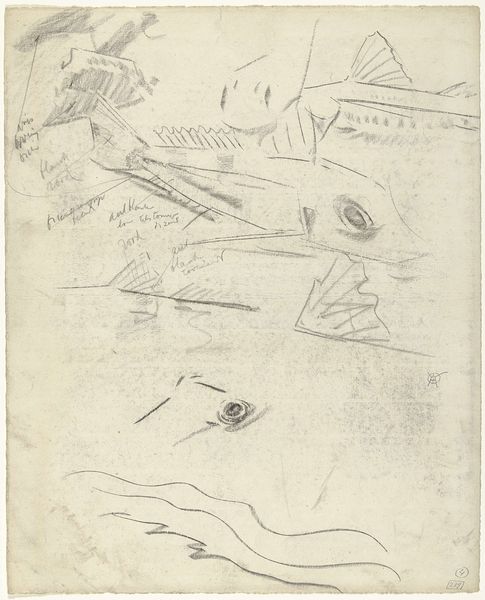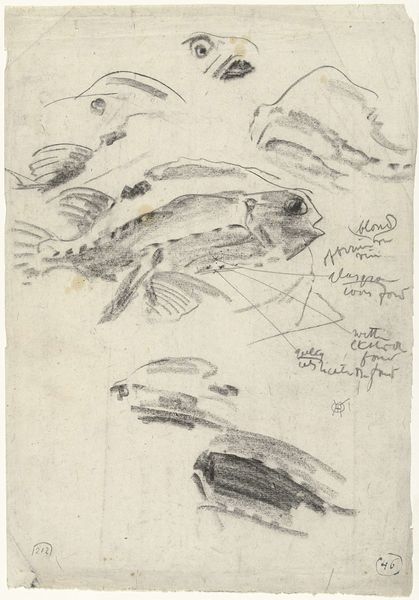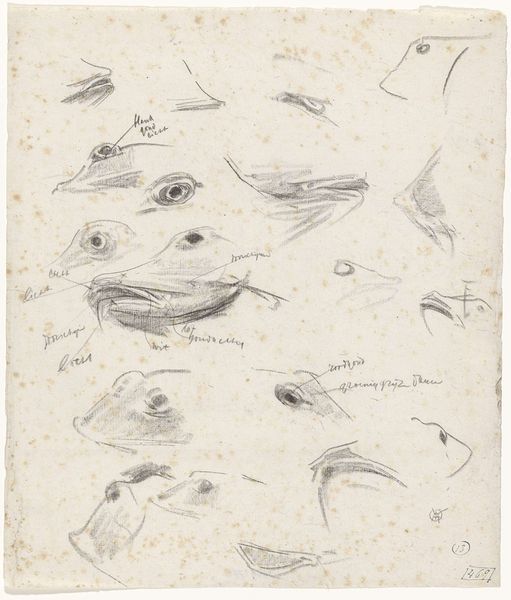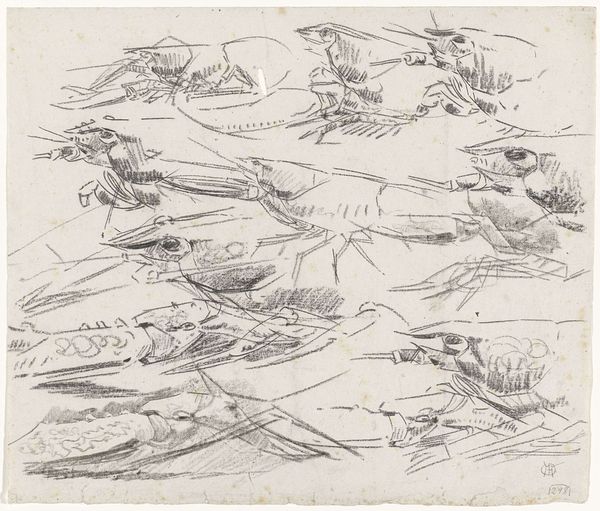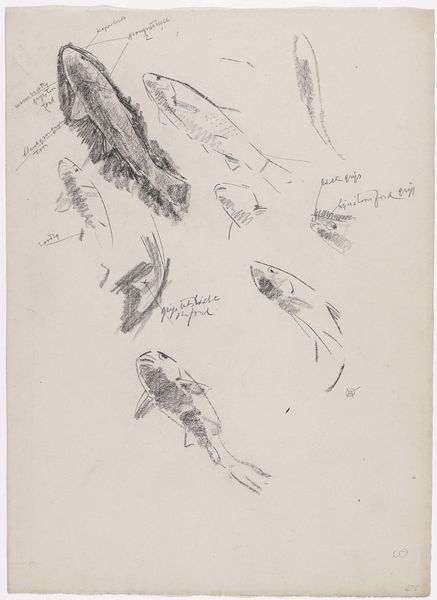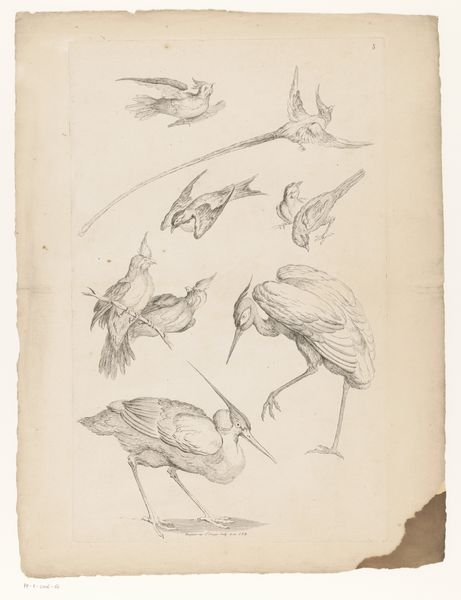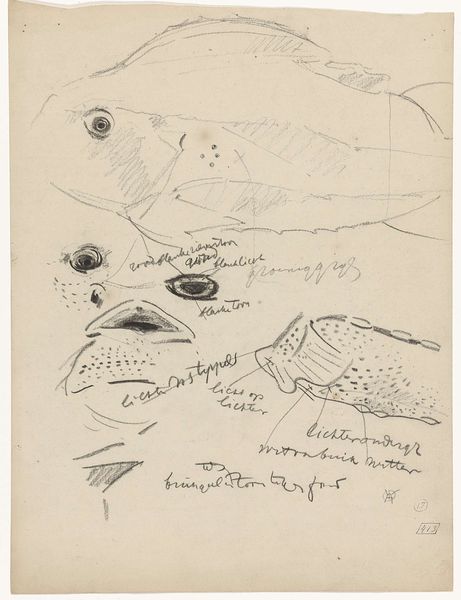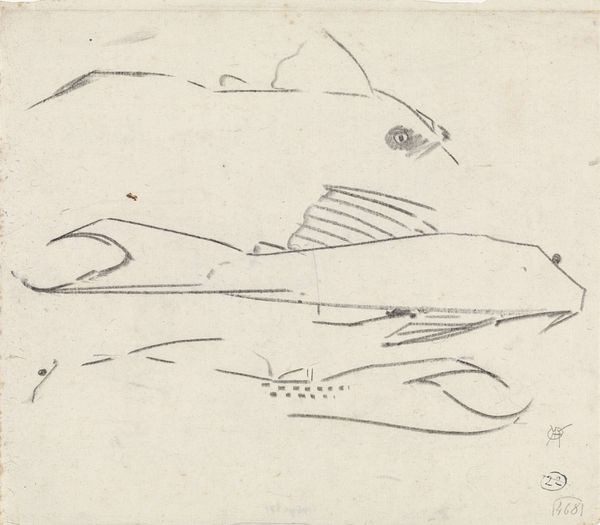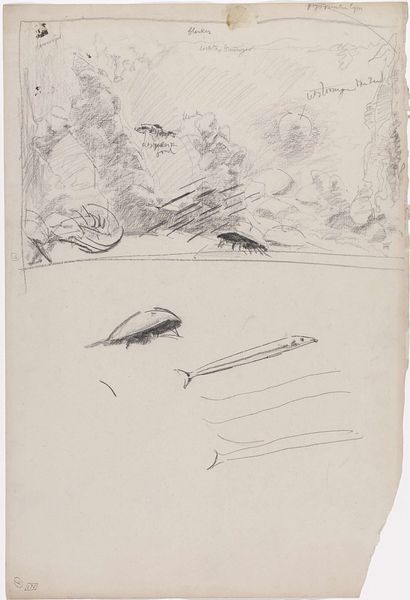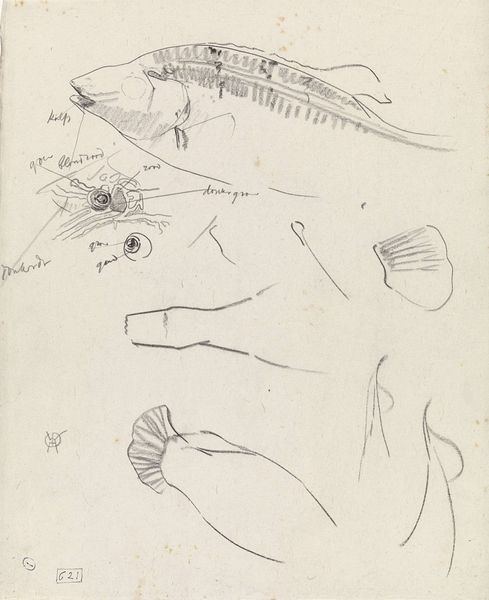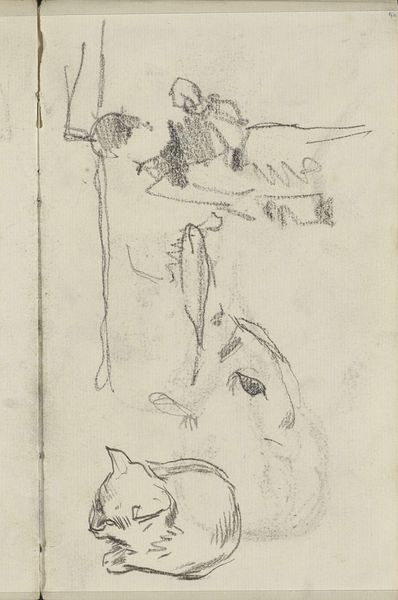
drawing, pencil, graphite
#
drawing
#
pen sketch
#
pencil sketch
#
form
#
ink drawing experimentation
#
pencil
#
line
#
graphite
#
academic-art
#
realism
Dimensions: height 428 mm, width 346 mm
Copyright: Rijks Museum: Open Domain
Curator: Ah, here we are, standing before Gerrit Willem Dijsselhof's "Studies van een vis, met kleurnotities" from between 1876 and 1924, part of the Rijksmuseum collection. It's a flurry of graphite and pencil sketches, quite unassuming. Editor: My initial thought? A scattered feeling, almost frantic. Like the artist was trying to capture something ephemeral before it vanished. The muted tones amplify that sense of urgency. Curator: Dijsselhof clearly aimed for a deep understanding of form here. Observe the precise lines capturing each scale, each fin. It's academic, almost clinical in its approach, a dissection through drawing. What do you see in the materiality? Editor: The raw paper itself becomes part of the story, doesn't it? The tooth of the page grabs the graphite, lending texture to the fish, as though feeling its scales in your fingertips. There’s a rawness. And yet… look closer; those little color notes jotted around each sketch breathe unexpected life into them! It's like he wanted to resurrect his specimens. Curator: Indeed. These annotations aren't merely scientific—they reveal his inner landscape. Each "warmgrey," "light red," seems almost like an incantation. In their interplay lies a dance between cold observation and warm sensibility. Dijsselhof uses line, and color hints, in an emotive exercise—can we say his work is academic, when we sense this emotive landscape? Editor: Perhaps this contrast between exact study and emotive marking isn't accidental but the very essence! Isn't science merely poetry measured and organized by means of numbers and diagrams? Dijsselhoff’s studies invite reflection on that very principle—as though nature becomes both object *and* inspiration. Curator: Very well said. To see such discipline wed to these evocative markings leaves us wondering about the nature of artistic pursuit. Editor: Exactly. Perhaps every artist treads the uncertain boundary that blurs observation into expression and analysis with that of revelation.
Comments
No comments
Be the first to comment and join the conversation on the ultimate creative platform.
